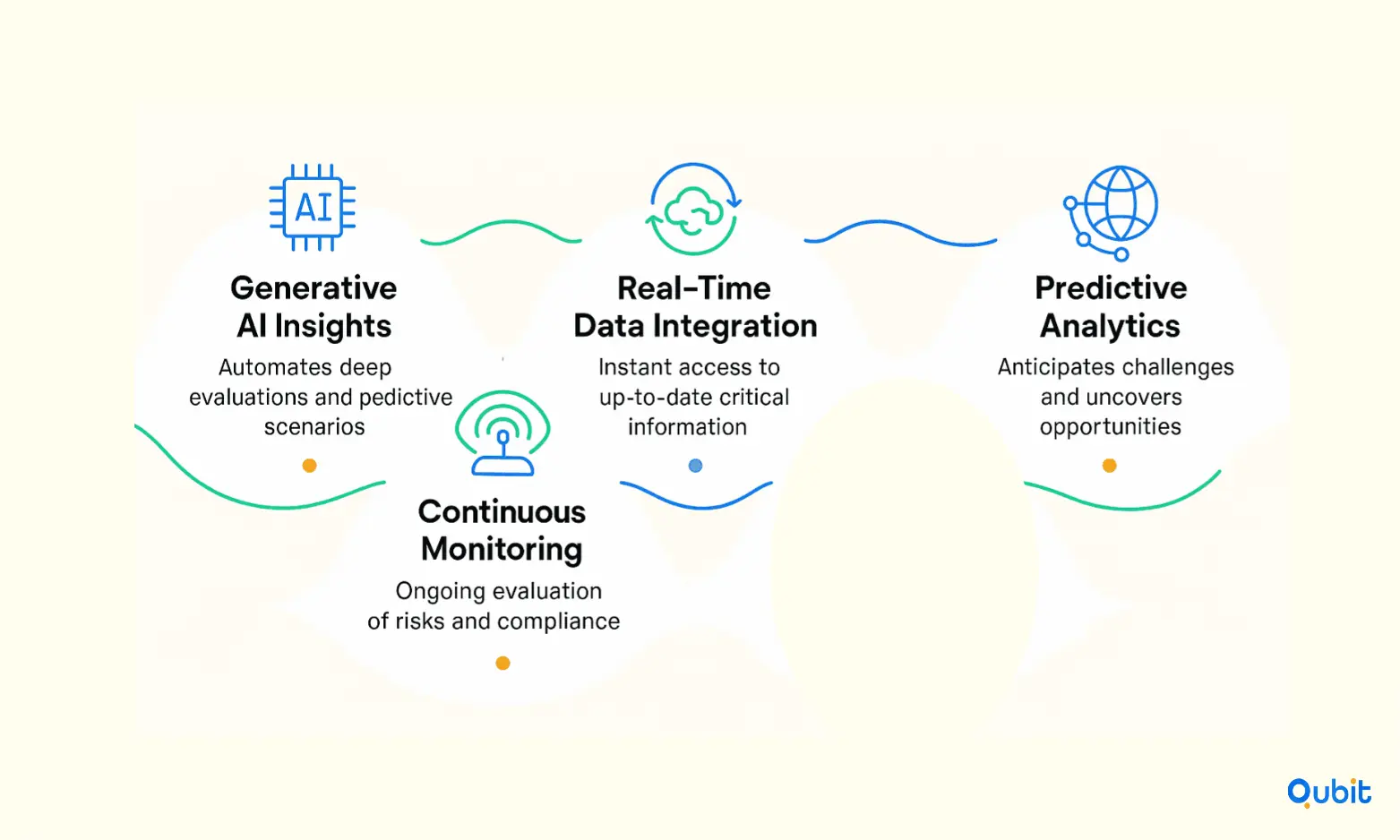Turning a promising idea into a fundable startup takes more than ambition. It takes proof. Due diligence is the process that separates a compelling story from a real investment case, by testing financials, market potential, and how the business actually operates.
The funnel is steep. For every 101 opportunities, about 28 reach management meetings, 4.8 reach diligence, and one gets funded. That is why your diligence process needs to be structured. It should help you move fast, ask the right questions, and avoid wasting time on weak fits.
In this guide, you will get a step by step due diligence roadmap from first review to final decision. You will also see how modern, tech driven approaches can make diligence more efficient without lowering the bar.
Startup Due Diligence Process and Timing
Startup due diligence is a structured review of a company’s business, finances, and legal standing. The goal is simple: validate the facts before you invest.
Due diligence usually starts after the term sheet is agreed. From there, the timeline depends on deal complexity. Some deals close in a week, while others take months, especially when more data and stakeholders are involved.
What changes by stage is what you focus on. Pre-seed and seed diligence is typically faster and more qualitative. You spend more time on team quality, market validation, and whether the story holds up. Series A and beyond demands deeper scrutiny. You look harder at financial records, operational metrics, and scalability signals, because there is more history to verify.
Modern diligence blends manual review with technology enabled analytics. Tools that analyze financial trends or operational data can speed up checks, surface inconsistencies, and reduce repetitive work. The point is better accuracy with less wasted time, not shortcuts.
Additionally, understanding how to evaluate startup investments can further refine decision-making by highlighting methods to distinguish promising opportunities.
One more reality check: many companies still feel unprepared. Recent surveys put transaction readiness confidence at only 5.7 out of 10. That is why strong diligence workflows matter, for both investors and founders.
Critical Aspects Investors Evaluate in Startup Due Diligence
Investors evaluate more than your numbers. They are trying to confirm whether your team can execute, your market is real, and the business can scale without hidden risk. A simple example is an edtech startup with an experienced CTO and a first time CEO. In that case, complementary skills and clear role ownership matter fast.
Market validation deserves special attention. Multiple studies point to it as a core failure point, and 42% of startups collapse due to misreading market demand. That is why investors pressure test market product fit early, not as an afterthought.
- Team Dynamics And Leadership
Investors look for a cohesive team with complementary skills and clear decision making. They also assess founder resilience and ability to adapt under pressure. - Financial History And Projections
Investors review revenue, margins, burn, and cash flow discipline. Projections must be realistic, data backed, and transparent, because trust breaks quickly when numbers feel spun. - Product Viability And Market Fit
They test whether the product solves a real problem with a clear value proposition. Evidence matters here, like customer feedback, adoption, retention, and why users choose you over alternatives. - Market Potential And Competitive Landscape
Investors evaluate market size, growth, and timing. They also map competitors to understand differentiation, defensibility, and where you could get squeezed. - Stakeholder Relationships
Customer and vendor relationships signal operational reliability. Strong testimonials, renewals, and long term contracts reduce perceived risk. - Corporate Documentation And Legal Compliance
Investors review contracts, IP ownership, and compliance records to spot liabilities. Clean documentation signals maturity and prevents deal delays late in the process. - Equity Structure And Ownership
The cap table must be clean and fundable. Investors check ownership distribution, option pools, and room for future rounds, since messy structures create friction later.
If you address these areas clearly, you reduce red flags and speed up decisions. It also makes diligence feel like confirmation, not interrogation.
For startups aiming to refine their approach, a systematic checklist can provide structured benchmarks. Explore actionable criteria for evaluating startups to align your preparation with investor expectations.
Legal, Regulatory, and Risk Considerations
Thorough legal due diligence is a cornerstone of any successful investment or business transaction. A meticulous review of legal documents, intellectual property (IP) assignments, and compliance certificates ensures that all critical aspects of a deal are transparent and verifiable. Overlooking these elements can result in unforeseen liabilities, such as regulatory penalties or disputes over intellectual property ownership.
Misrepresentations or incomplete disclosures during the due diligence process can escalate into significant legal challenges. For instance, undisclosed contractual liabilities or pending litigation may not only derail negotiations but also expose parties to reputational and financial risks. Investors, therefore, prioritize identifying potential litigation risks, regulatory non-compliance, and contractual obligations to mitigate exposure.
Common Deal Breakers in Due Diligence
- Weak intellectual property protections leave startups vulnerable to competitors and legal disputes during diligence reviews.
- Technical debt in core products signals future operational risks and may deter investors seeking scalable solutions.
- Unrealistic financial projections undermine credibility and raise concerns about management’s understanding of market realities.
- Negative stakeholder references can reveal hidden issues with leadership, culture, or execution capabilities.
- Unresolved legal disputes or incomplete documentation increase regulatory risk and complicate deal closure.
Documented evidence of legal compliance and robust corporate governance practices plays a pivotal role in building investor confidence. Companies that can demonstrate adherence to legal and regulatory standards are better positioned to secure favorable terms and long-term partnerships.
In a landscape where legal oversights can have far-reaching consequences, ensuring comprehensive due diligence is not just a best practice, it’s a necessity.
Benefits and Value of Due Diligence for Startups
A well-executed startup due diligence process does more than identify potential risks, it also uncovers the unique strengths and opportunities within a startup. By thoroughly evaluating operations, financials, and market positioning, startups can gain a clearer understanding of their strategic advantages. This process not only helps refine internal alignment but also highlights areas where the business excels, such as innovative solutions or untapped market potential.
Transparency plays a pivotal role during due diligence. When startups openly share detailed and accurate information, they foster trust with potential investors. This trust can significantly accelerate funding rounds, as investors feel more confident in the startup’s viability and long-term potential. Additionally, the insights gained through due diligence can serve as a roadmap for startups to address gaps, enhance their value proposition, and position themselves as a compelling investment opportunity.
Proactive Documentation Preparation for Investor Confidence
This transparency is strengthened when startups prepare comprehensive, VC-specific documentation before the due diligence process begins. Early organization of financial records, legal agreements, and intellectual property details signals professionalism and readiness. Investors are more likely to trust startups that present clear, accurate information upfront. Proactive preparation also accelerates funding timelines by reducing back-and-forth requests.
Ultimately, due diligence is not just a tool for risk assessment; it’s a strategic advantage that can propel startups toward growth and success. By embracing this process, startups demonstrate their commitment to excellence and their readiness to thrive in a competitive market.
What The Numbers Say: Due Diligence Outcomes And Investment Performance
Due diligence improves decision quality, but it does not eliminate failure. The data helps you set realistic expectations and refine your process over time.
Even with thorough diligence, about 30% of venture-backed startups fail. Recent market data also shows volatility. In 2024, there were 966 startup shutdowns, up 25.6% from 2023. This jump reinforces a key point: diligence is necessary, not foolproof.
Failure rates can vary across platforms and portfolios. One driver is how strict the evaluation framework is and how consistently it is applied. More rigorous screening can lower failure rates, but it cannot guarantee winners.
Use these trends as a feedback loop. Track where deals fail, which signals were missed, and what your process overweighted. Over time, this improves how you balance risk, speed, and conviction.
Technology and Innovation in Startup Due Diligence Process
Startup due diligence is getting faster and more data-driven because deal sizes keep rising. In 2024, the average Series C round reached $50 million, which increases the pressure to move quickly without lowering standards.
AI and analytics tools are driving this shift. They can process large datasets fast, benchmark key metrics, and flag anomalies that manual review can miss. These systems can also spot discrepancies early, so you spend time investigating real risks, not chasing noise.
The time benefit is real. Recent studies suggest AI powered solutions can reduce due diligence time by up to 40%. That frees teams to focus on higher value judgment calls, like market timing, competitive risk, and founder execution.
The bigger change is consistency. Data-driven workflows help you find patterns across deals, surface hidden risks, and make decisions with clearer evidence. As tools improve, AI and analytics will keep raising the baseline for speed and precision in diligence.
Challenges and Market Dynamics Affecting Due Diligence
The fast-paced nature of modern investment cycles often creates significant hurdles for both investors and startups. Competitive market pressures, coupled with compressed timelines, frequently compel investors to rely on “proxy due diligence” (using third-party or indirect assessments) by using secondary or incomplete information. While this approach may save time, it can inadvertently heighten risk exposure by overlooking critical details.
Resource constraints further complicate the process. Investors managing high deal flow often struggle to allocate sufficient time and expertise to each opportunity. This challenge is particularly pronounced in smaller firms or teams, where the demand for thorough analysis often exceeds available capacity. As a result, traditional due diligence methods may be compromised, leaving gaps in risk assessment.
Additionally, the rapid pace of market dynamics forces stakeholders to make decisions quickly, sometimes at the expense of quality. This urgency can lead to oversights, increasing the likelihood of unforeseen issues post-investment. For startups, these dynamics can also mean missed opportunities to present their value comprehensively.
Addressing these challenges requires innovative approaches to streamline due diligence without sacrificing depth. By adopting tailored solutions, investors can mitigate risks while maintaining efficiency in their decision-making processes.
Best Practices and Methodologies for Effective Due Diligence
A structured workflow ensures comprehensive, consistent due diligence.
1. Design a Structured Workflow
Organizing the due diligence process into clear stages—such as preliminary screening, in-depth analysis, and ongoing monitoring, helps maintain focus and efficiency. Each stage should have defined objectives, timelines, and deliverables to avoid gaps in evaluation.
2. Utilize Secure Digital Repositories
Centralized and secure digital repositories streamline the storage and sharing of sensitive documents. These repositories not only enhance collaboration but also ensure compliance with data protection regulations.
Execution gaps remain. A recent study found 97% of companies report major challenges in transaction readiness. This underscores the necessity of robust best practices, especially for handling documentation and compliance efficiently.
3. Implement Detailed Checklists
Comprehensive checklists act as a roadmap, ensuring no critical aspect is overlooked.
- Team Background Verification
- Financials Review
- Legal Contracts Check
They should cover financial, operational, legal, and reputational factors, tailored to the specific industry or investment type.
4. Engage Third-Party Experts
Independent validations from third-party experts can uncover hidden risks and provide unbiased insights. Their specialized knowledge adds depth to the evaluation process, particularly for complex transactions.
Note: For pre-seed rounds, resource constraints may limit full due diligence. Prioritize financial and legal basics where possible.
5. Regular Training and Updates
Due diligence methodologies should evolve alongside regulatory and technological changes. Regular training sessions and updates to workflows ensure teams remain equipped to handle emerging challenges.
Collaborative Frameworks and Scoring Systems in Due Diligence
Building on these best practices, collaborative due diligence frameworks enable teams to evaluate startups using standardized criteria. Scoring systems assign objective ratings to critical factors, such as team strength, market fit, and risk exposure. This approach reduces bias, improves transparency, and streamlines decision-making across investment committees. Adopting these systems helps investors maintain consistency and accountability throughout the evaluation process.
By adopting these practices, organizations can enhance the accuracy and reliability of their due diligence efforts, ultimately driving better decision-making.
Future Trends and Evolution in Due Diligence Practices
Emerging tools like generative AI are enabling deeper insights by automating complex evaluations and generating predictive scenarios. These innovations are complemented by real-time data integration, which allows for instantaneous access to critical information, ensuring decisions are based on the most current data available.

Continuous monitoring is another trend reshaping the field. Unlike traditional, static assessments, this approach ensures ongoing evaluation of risks and compliance, creating a dynamic framework that adapts to evolving circumstances. Enhanced predictive analytics further refine this process, offering foresight into potential challenges and opportunities, making due diligence not just reactive but prescriptive.
Additionally, the development of improved simulation models is paving the way for more accurate risk assessments, particularly in cross-border transactions where regulatory and cultural complexities abound. However, while technology is at the forefront, the human element remains indispensable. A balanced integration of cutting-edge tools with expert judgment will likely yield the most effective outcomes, ensuring both precision and contextual understanding.
As these trends continue to evolve, businesses that embrace these innovations will be better positioned to navigate the complexities of modern due diligence with confidence and agility.
Conclusion
A well-executed startup due diligence process is the cornerstone of successful startup investments. By implementing a structured, transparent, and technology-driven approach, investors can significantly reduce risks while identifying ventures with the highest potential.
If you're ready to transform your due diligence insights into compelling investment opportunities, we can help. At Qubit Capital, our expertise in Pitch deck creation ensures your startup’s potential is communicated effectively. Contact us today to take the next step toward investment success.
Key Takeaways
- Startup due diligence is a multi-stage process critical to investment success.
- Investors evaluate startups on team dynamics, financial health, product viability, and market potential.
- Robust legal and regulatory reviews are essential for mitigating risks.
- AI and advanced analytics are transforming the due diligence landscape by increasing efficiency.
- Implementing structured processes and best practices can significantly enhance evaluation outcomes.
Frequently asked Questions
What are the main steps in the startup due diligence process?
The main steps in startup due diligence include initial screening, analysis of financials, legal review, and evaluating market fit. Each step reduces investor risk.






